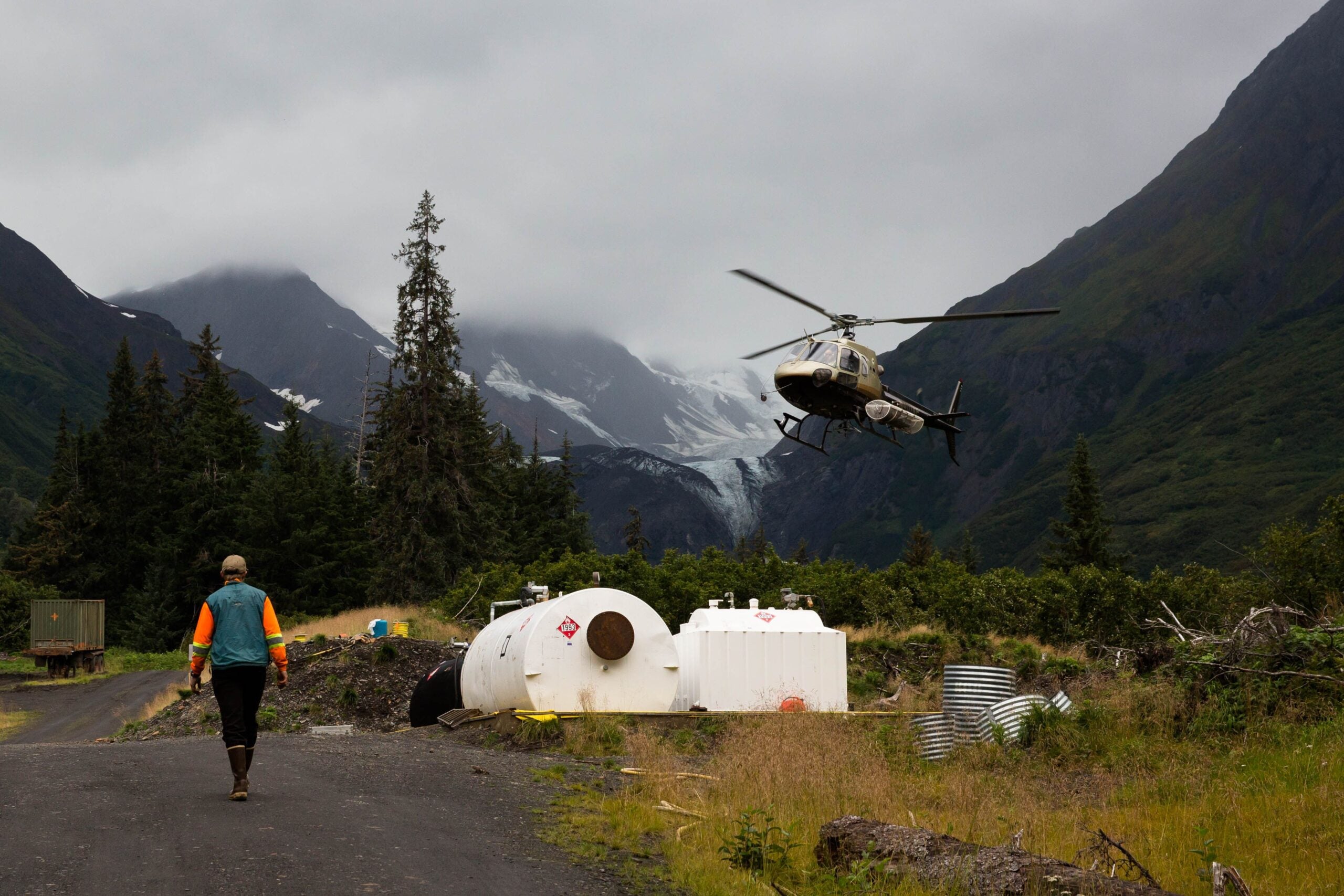Chilkat Indian Village and Conservation Groups Appeal Chilkat River Mine Ruling
Groups argue that U.S. Bureau of Land Management must consider future impacts of mining before approving advanced hardrock exploration
Contact
Groups that sued the U.S. Bureau of Land Management (BLM) over its approval of a hardrock mining exploration plan in Southeast Alaska’s Chilkat River watershed today appealed a decision from the federal District Court in Alaska to the U.S. Court of Appeals for the Ninth Circuit.
Represented by Earthjustice, the Chilkat Indian Village of Klukwan, Southeast Alaska Conservation Council (SEACC), Lynn Canal Conservation, and Rivers Without Borders argue that BLM’s approval of a mining exploration plan for Constantine Metal Resources, Ltd., violates federal law by refusing to consider in any way the impacts of potential mine development on the sensitive watershed.
The watershed, which includes the Klehini River, provides spawning grounds for all five species of Pacific salmon, as well as anadromous eulachon and trout. The surrounding steep mountainsides, forests, and river valleys are inhabited by mountain goats, wolverines, wolves, black and brown bears, and moose. It is a spectacularly beautiful place, home to the Chilkat Bald Eagle Preserve — which attracts thousands of bald eagles each fall.
The Chilkat River watershed is especially vital to the Chilkat Indian Village of Klukwan. The river, with its abundant salmon population, is the economic and cultural lifeblood of the village and the Chilkat Tlingit people who have called it home for at least 2,000 years. In Tlingit, Klukwan means “eternal village.”
Statement of Kimberley Strong, Tribal Council President of the Chilkat Indian Village of Klukwan:
“The Village of Klukwan is home to about 100 people and sits on the bank of the Chilkat River. The river has been the heart of our community for longer than recorded time, but it faces one major threat: the massive, dangerous mine Constantine Metal Resources wants to build upstream from our homes. The river feeds us financially, culturally, spiritually and literally. This mine threatens to wipe us off the map. It is not the question of whether the mine will release pollution. It is a question of when. A foreign company’s profits should not mean more than my people’s survival.”
Modern hardrock mines typically store billions of gallons of waste, acid-generating rock and contaminated water behind enormous earthen dams. This pollution threatens downstream resources in the best of circumstances — even trace amounts of certain heavy metals are toxic to salmon. Even worse, every year more of these dams fail and release deadly tailings into the environment, with devastating results. Groups in the lawsuit contend that before Constantine’s exploration leads to development rights, BLM’s assessment must look ahead to the impacts of a full-scale mine.
Find out more about the Chilkat watershed and the threats facing it by watching the documentary “Rock Paper Fish,” directed by Colin Arisman and Conor Gallagher and produced by Wild Confluence Media and Nomad Island, with support from the Southeast Alaska Conservation Council.
“The Constantine Mine is a real and present threat to our traditional subsistence lifestyle that we have treasured for centuries,” said Jones Hotch Jr., Tribal Council Vice President of the Chilkat Indian Village of Klukwan. “A Tlingit proverb: Haa xaseigoo xanu haa atxaayi means ‘our life is close to our food.’ A life without our salmon, without our traditional ways and the possibility of not being able to pass these traditions on to our future generations is essentially what hangs in the balance. The mine literally is a threat to our lives!”
“There are only two things that stand between an irreplaceable, pristine place like the Chilkat Valley, and a mining project like the Constantine, that could destroy it,” said Meredith Trainor, Executive Director of the Southeast Alaska Conservation Council (SEACC). “The first is committed people determined to take difficult stands for the places they love; the second is the National Environmental Policy Act (NEPA) analysis that federal law requires, and that helps us all to protect it. SEACC is proud today to stand in solidarity with the Chilkat Indian Village in calling on the BLM to fully implement NEPA.”
“The public, and especially the people of Klukwan and Haines, deserve to know how the Chilkat Valley would be changed by this mine before it’s too late to say no,” said Erin Whalen, an attorney at Earthjustice. “We’re asking the court to recognize BLM’s obligation under the National Environmental Policy Act to disclose and consider these effects now.”
“We stand with the Village of Klukwan to oppose industrial mine development in the Chilkat watershed,” said Jessica Plachta, Executive Director of Lynn Canal Conservation. “The Chilkat Valley is a biodiversity heirloom, a rarity on earth that should not be squandered by extractive multinationals. Constantine’s Palmer Project endangers downstream communities with perpetual pollution. In this extreme environment, with our high rain and snowfall, our seismic volatility, the risk is too dire. ;The time is now to assess the risks of a full-scale mine, before the exploration project becomes a hazardous waste site.”
“The Chilkat watershed has extraordinary ecological and cultural values that would be imperiled by mining in the headwaters,” said Chris Zimmer, Alaska Campaign Director for Rivers Without Borders. “It is short-sighted and irresponsible for the BLM to approve advanced mineral exploration activities facilitating mining without first considering the potential impacts of mining on the people, fish and wildlife this wild and virtually pristine river system sustains.”

Additional Resources
About Earthjustice
Earthjustice is the premier nonprofit environmental law organization. We wield the power of law and the strength of partnership to protect people's health, to preserve magnificent places and wildlife, to advance clean energy, and to combat climate change. We are here because the earth needs a good lawyer.